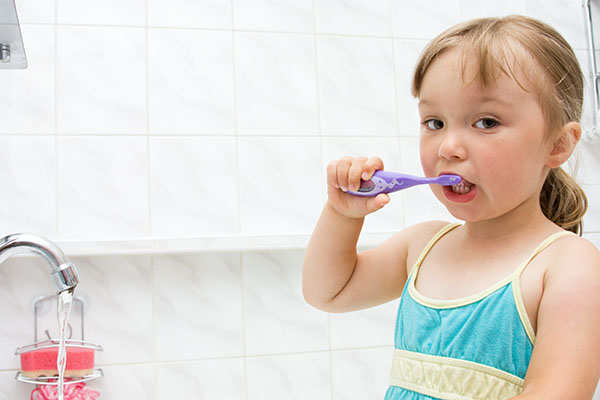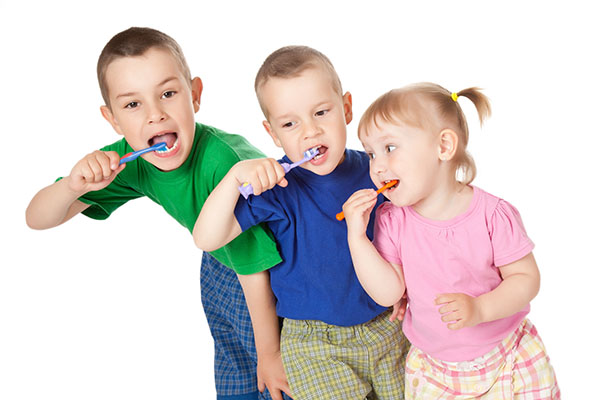Ask a Pediatric Dentist: Are Pacificiers Bad for My Child’s Teeth?

From the first appointment, a Pediatric Dentist keeps in mind a pacifier or thumb sucking habit and watches the way your child's teeth and jaw develop. According to the American Academy of Pediatric Dentistry, sucking generally only becomes a problem if it continues after the age of 3.
It is normal for children to suck on pacifiers (it stimulates their oral cavity), but as they get older, what is supposed to soothe your child may end up harming your child’s teeth. In this article, we cover the effects of pacifiers on your child’s teeth and how you can prevent any negative impacts.
Pacifiers and your child’s teeth
Your child’s dental health is vital once teething begins, and you should pay attention to their teeth to prevent the occurrence of tooth decay, cavities and other oral issues. This includes taking away anything that may hamper the proper development of their oral structures, including pacifiers. However, sucking is a normal phenomenon with babies, and they often derive comfort from using pacifiers. Pacifiers help to reduce the occurrence of sudden infant death syndrome (SIDS). Since babies using pacifiers do not sleep as deeply as those who do not use pacifiers, they will be jerked from a sleep that causes breath stoppage.
Pacifiers and baby bottles typically pose no threat to the child’s teeth within the first few years of their life. In fact, at first, the calming effects of pacifiers surpass their disadvantages. However, extensive use of pacifiers may result in oral health issues. The adverse effect of pacifiers typically happens once the child starts getting more of their teeth.
While most children stop using pacifiers on their own, sometimes they may need the help of a pediatric dentist. This is because pacifiers can alter the correct growth and development of the child’s teeth and mouth. Extended use of pacifiers can affect the shape of the roof of the mouth negatively, hinder proper growth of the oral cavity, expose your child to ear infections and cause issues with teeth alignment. These are complex orthodontic issues that may require extensive dental procedures to correct. Preventing your child from excessive use of pacifiers can help avoid the need for orthodontic treatment later in life, such as braces and palatal expanders. If your child is unable to successfully stop their pacifier habit, your pediatric dentist may recommend an oral appliance that interferes with sucking.
Minimizing the effects of pacifiers
If your child does have to use a pacifier, the following tips will help reduce the risk of mishaps, tooth decay or other issues in babies who use pacifiers:
- Buy only single-piece pacifiers: If the pacifier has fewer breakable parts, your child will be at a lower risk of choking.
- Limit the time the child uses the pacifier: As much as possible, prevent the child from sleeping with pacifiers, especially at night.
- Discourage pacifier use through positive reinforcement: When the child gets older, he or she will need to need to be weaned off pacifiers. This may be difficult, but you can use positive reinforcement or make pacifier use uncomfortable for them. You can try dipping the tip of the pacifier in white vinegar; it causes no harm, but the taste is lousy.
The bottom line
Pacifiers do not damage your child’s teeth automatically. Pacifier use is normal for children below 3 years of age. However, frequent use, especially after this age, can cause lasting oral problems. Talk to your pediatric dentist about whether or not your child should be using a pacifier or not.
Request an appointment here: https://www.memorialpediatricdds.com or call Memorial Pediatric Dentistry at (281) 822-6600 for an appointment in our Houston office.
Check out what others are saying about our dental services on Yelp: Pediatric Dentist.
Recent Posts
There are certain questions that are important to ask your child’s pediatric dentist to find out about their skill, experience and ability to keep your child comfortable while at the dentist. By learning more about your child’s pediatric dentist, you can calm any anxieties you or your child have before a visit. Every pediatric dentist asks…
According to the American Academy of Pediatric Dentistry, parents should take their children for their first visit to the pediatric dentist by the time they clock one. The dental appointments early in life are crucial for ensuring healthy teeth and proper oral development. It also allows the child to get acquainted with the pediatric dentist…
Your child needs pediatric dentistry services. Caring for their mouth, teeth and gums is critical at a young age. You work hard to keep cavities, plaque, tartar and other issues at bay. If you place a significant emphasis on your health, you should do the same for your young family members. If your child needs…
Are you looking for more information on pediatric dental care? Many parents who have young children wonder when exactly they need to take their child to their first dentist appointment. According to the American Dental Association, every child should visit a dentist by the age of one or as soon as their first tooth appears.…


